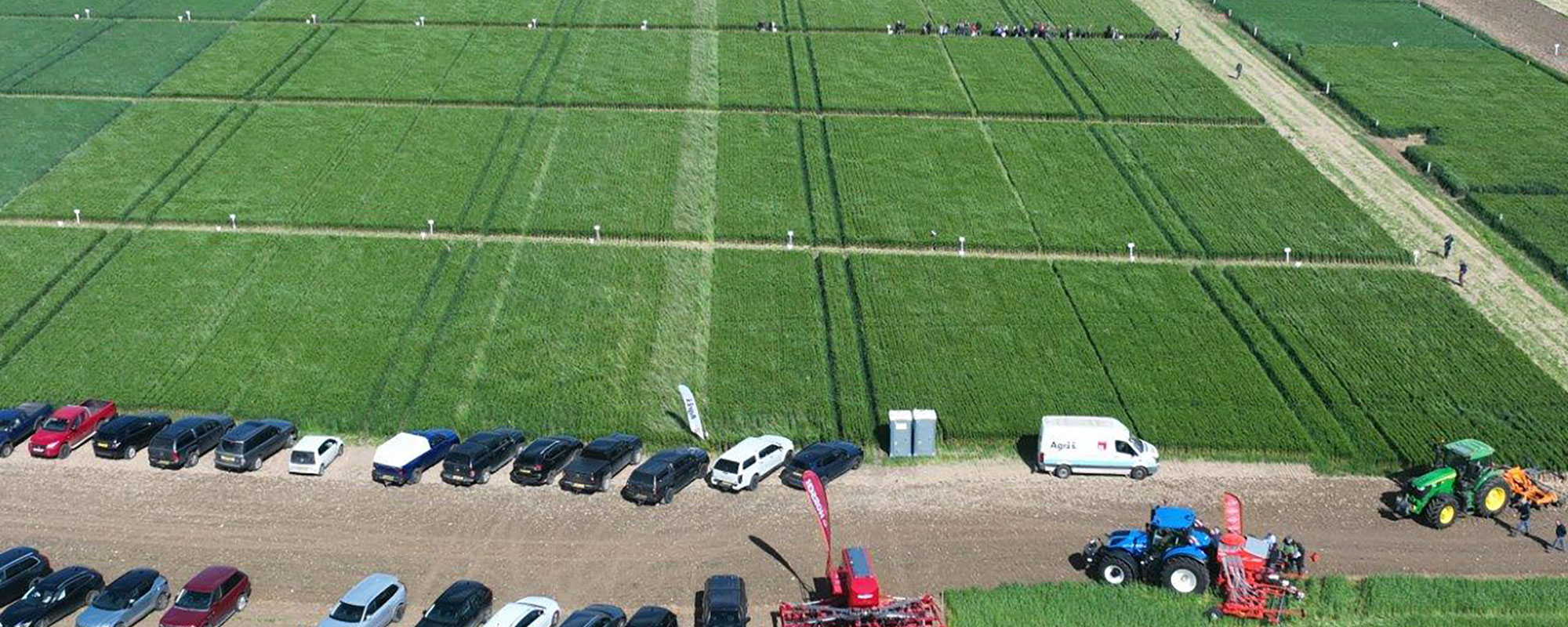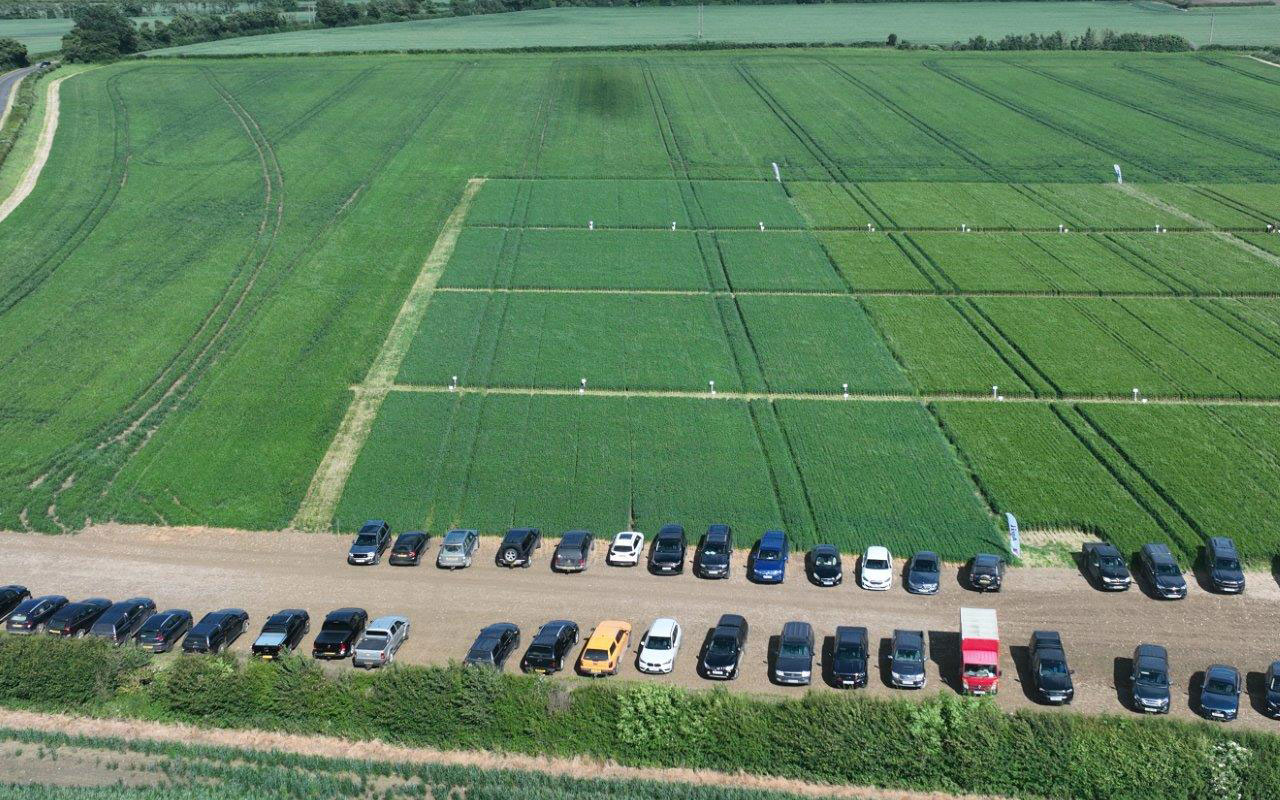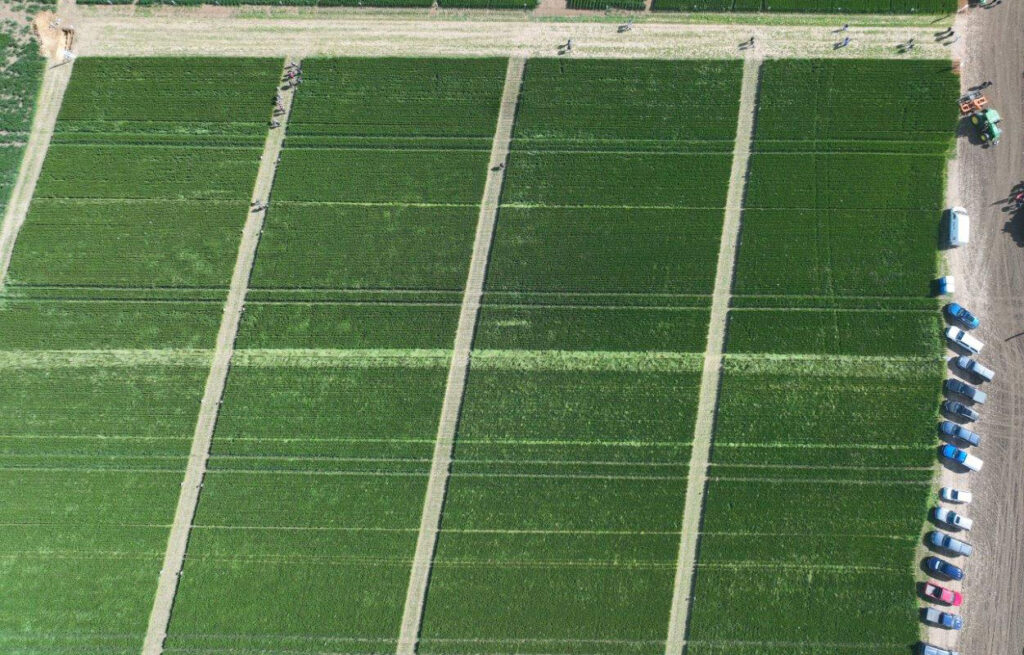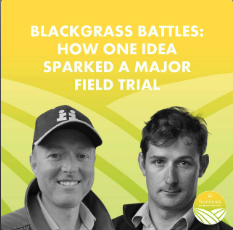
A comprehensive Agrii on-farm demonstration focusing on different combinations of drilling date, cultivation technique, and drill options delivers vital insight into the best management strategies for achieving the most effective blackgrass control while encouraging strong early crop growth.
Delaying drilling to give the best options for blackgrass control or simply because of challenging autumn conditions has a bigger effect on crop establishment and subsequent 11 plant health than many realise, says Agrii agronomist Jamie Lyttle.
Field-scale trials are being carried out by him and Agrii area business manager Greg Taylor near Brackley, Northamptonshire, exploring the benefits of a ploughing reset in direct drill systems and cultivations to force an early flush of weeds.

“It all came about when we were walking some spring bean crops a few years ago,“ Jamie explains. “We were very concerned about the level of blackgrass germination taking place and why this was occurring following the adoption of a new drill.
“This was also very much against the backdrop of the last three to four years’ weather and its effect on cultivations and drilling. Whereas before we would always have said growers should be prioritising delayed drilling, we now believe a more flexible mindset is required.
“We seem to be increasingly coming out of the winter with late drilled crops that are very much under stress and not able to grow well the following spring, and are increasingly susceptible to disease and pest attack.
“We’ve looked at drilling dates ranging from 15th September to 22nd November and can see the earlier drilling plots are especially clean where we have carried out a ‘ploughing reset’, but without this, they quickly get out of control with regard to blackgrass.
“As we move into the later drilling timings, we see crops getting cleaner, even when direct drilled, but they are much further behind. So, you have cleaner crops but ones under pressure from day one.“
Forcing the flush
According to Greg Taylor, these regionally based trials have also looked at the practicalities and benefits of forcing a flush of blackgrass earlier in the autumn in a direct drill scenario where they would naturally come too late if left alone.
“The idea is that if you can get an earlier flush, get it out of the way quicker, you can move on to getting a successful, earlier drilled crop, but with fewer blackgrass problems.
“What we have found is that if you can get that flush, you can then go drilling with minimum disturbance.
“We’re not doing true direct drilling at that point because we’ve already been through with some sort of cultivation, even though it could have been incredibly light.
“But we have effectively used the flush to then be able to use the direct drill as a minimum disturbance tool at the point of drilling and some of those plots were incredibly successful in having the least amount of blackgrass.“
Important learnings

The trials will provide significant insight and knowledge around keeping blackgrass under control without reducing the ability of the crop to thrive subsequently, he believes.
“That’s an incredibly important aim for all Agrii customers. We’ve hit the reset button in some cases and done a lot of ploughing, but there’s only so many times you can do that before you start bringing up last year’s blackgrass. It’s all about that zero seed return policy.
“So, we have to look at all the options and put the points of the sequence together as best we can and see how we can manage the processes better. For example, how do we change a drill and ensure we manage the the system around it to best effect?
“Or should we change the system but keep the same drill. Do we need to invest in a drill that could cost a hundred thousand pounds, or do we stick with what we already have and just do things better?“
Jamie Lyttle points out that last year’s first trial focused on four drills, but things have grown significantly since then.
“We’ve now gone to eight drills, six different cultivation techniques, three drill timings and three separate seed rates, and we’re starting to see some truly thought-provoking results. It’s going to be really interesting after harvest when we can process all the data.
Listen: Blackgrass Battles: How One Idea Sparked a Major Field Trial
Today we are joined by Agrii’s Jamie Lyttle, agronomist, and Greg Taylor, area business manager and agronomist. Our focus is tackling a real challenge – black-grass – and how, through identifying the problem, field-scale trials were able to find real solutions. Let’s hear from the agronomist on that farm about how possible solutions were identified to help manage this persistent problem.



